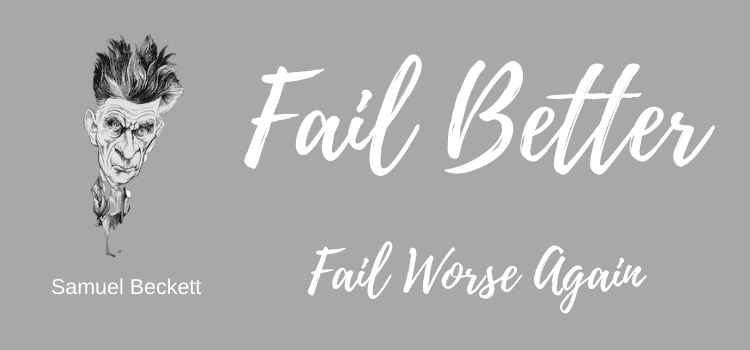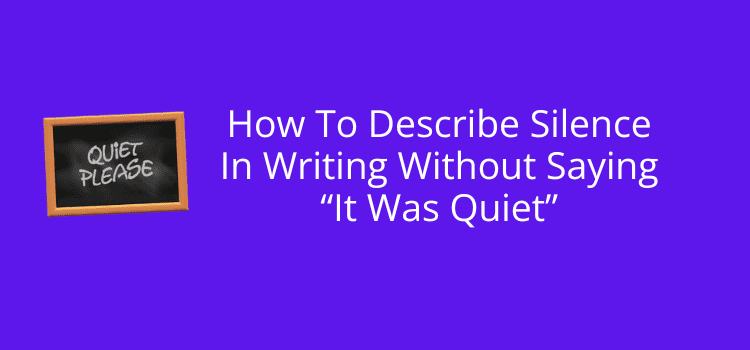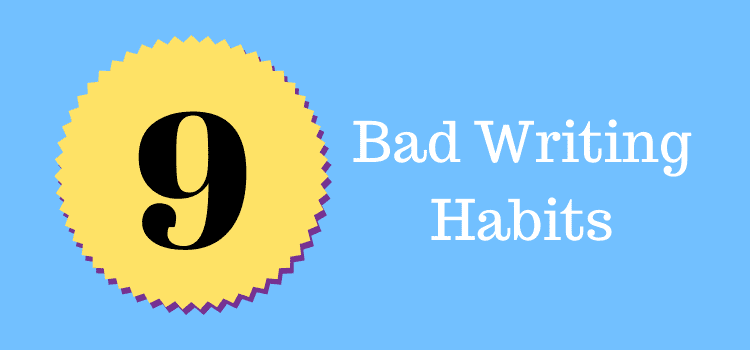
What did Beckett mean by fail better?
It has now become a tired and hackneyed cliché.
Fail better has been adopted as a catchcry, war cry, and even a pseudo-business model for tech startups, entrepreneurs, and elite sports stars.
The current interpretation of these two oddly collocated words in business, sport, and even in general use is that successful people rise above the fear of failure.
What does fail better mean?
It defines failure upon failure as essential stepping stones on a path destined to be a great success.
I can imagine that there are motivational speakers who could easily connect failure with Steve Jobs.
Jobs succeeded remarkably at first, then failed, but rose again to succeed at a much higher level.
Fail better has taken on the sense of another older adage, “If at first you don’t succeed, try, try again.”
While this quote is attributed to Thomas H Palmer’s Teacher’s Manual (1840), there is another line of thought that the quote should be credited to Robert the Bruce, king of Scotland, in 1314 when he was referring to a spider spinning its web over and over again.
In any event, this expression would have been apt for JK Rowling and her 12 rejections for Harry Potter.
In the throwaway vocabulary of today’s world, many people might say that she failed better.
But this is not true. She wrote one book and had to try 12 agents before one took her on. And then she became the richest author on the planet.
Writers know all about rejection, but that does not equate to failure. That is persistence and possessing a never-say-die attitude.
In her Robert Galbraith efforts, it is easy to say that Rowling failed. But only in comparison to her Harry Potter success. For any other author, her detective stories would be a stunning success.
In pursuit of success
Success is a rare thing. Chasing it is a drug, a social disease.
In using failure as an equative to eventual success, Beckett’s words have been twisted out of shape.
When you read the quote in full, you get a better perspective of what he meant.
“Ever tried. Ever failed. No matter. Try again. Fail again. Fail better.” Samuel Beckett
It could be read that I am always a failure, but no matter, I will continue.
However, when you read the words that immediately follow the well-known quote, as he wrote in Worstward Ho, you get a much better understanding of what he was saying about failure.
“First the body. No. First the place. No. First both. Now either. Now the other. Sick of the either try the other. Sick of it back sick of the either. So on. Somehow on. Till sick of both. Throw up and go.
Where neither. Till sick of there. Throw up and back. The body again. Where none. The place again. Where none. Try again. Fail again. Better again. Or better worse. Fail worse again. Still worse again. Till sick for good.
Throw up for good. Go for good. Where neither for good. Good and all.” Source
When you read the full passage, you see the darker mood and that it does not represent a path to success.
Beckett and fame
Beckett had an odd relationship with success. He was intensely private and spurned it.
In October 1969, while on holiday in Tunis with Suzanne, Beckett heard that he had won the Nobel Prize for Literature.
Anticipating that her intensely private husband would be saddled with fame from that moment on, Suzanne called the award a “catastrophe.” In true ascetic fashion, he gave away all of the prize money. Source
Because of Beckett’s dislike of fame and publicity, he refused to accept the Nobel Prize in person so he wouldn’t have to give a speech.
Beckett’s publisher accepted the award on Beckett’s behalf, and Beckett gave away his prize money, mostly to the library at his alma mater, Dublin’s Trinity College. Source
It wasn’t only his relationship with success that was misinterpreted. Waiting for Godot caused him to use a rare occasion to explain his words.
“If by Godot I had meant God I would have said God, and not Godot.” As quoted in The Essential Samuel Beckett: An Illustrated Biography by Enoch Brater.
Success to failure, or failure to success, but no in-between
Read the news, and you know how fast and far the successful can fall.
But to where?
Here’s a lexical challenge for you. You can put orange between yellow and red, and you can put average between good and bad. But what noun can you place between success and failure?
What verb can you use to explain the space between to succeed and to fail?
How do you describe something between Albert Einstein, Henry Ford, the iPhone and OJ Simpson, Richard Nixon, and the Ford Edsel?
This is the area of nothingness that I believe Beckett’s fail better was trying to describe.
I had a light bulb moment while writing this article.
My failure is because I have written 18 books. I am a failure because not one of them has been a success and sold one million copies.
But hold on.
It is quite an achievement to have spent all the years I devoted to writing 18 books.
It is quite an achievement to have self-published all of them and to have sold thousands of copies.
But by today’s standards, you can’t be just a little bit successful.
Alas, I didn’t sell millions of copies. So as there is no in-between–I failed.
Do I need to fail even better? Hardly! Fail worse again. Still worse again. Till sick for good.
I have written over 700 articles on this blog, and 20,000 people a week come to read them.
But successful blogs get 500,000 readers per week. So I must have failed, again.
Fail because there is nowhere else to go
I read the following quote by Erin Markey in an article on Fast Company.
“There’s no way to know [how to develop your work] without just fucking fail, fail, fail, fail, failing at it. I mean, failure is such a boring old trend now. Everybody knows that failure is the key to everything. But then what’s next?
If we know that failure is the way to get anything done that feels good, then it’s about getting the space to imagine the actual utopia that follows it.
So yes, fail, but also allow yourself to imagine what could come next—not the perfect world inside of this world, but the perfect world that seems impossible. That is the thing that I hope comes out of a million failures.”
Beckett might have agreed that you need to imagine the utopia that follows failure. But it doesn’t have a name, a verb, or a noun.
Success is a comfort zone that so many pretend to be in. How many NYT and USA Today Bestselling authors are there on Twitter?
But they don’t have much of a choice. They can either portray themselves as successful or …?
Who would ever admit that they were a failure at high school and then graduated to be a failure at everything else in life after that?
Writers know what fail means
“With leastening words say least best worse. For want of worser worse. Unlessenable least best worse.” Beckett
Writers live in the limbo world between success and failure. It’s purgatory, and only to be rarely praised but mostly criticized.
“You missed a comma on page 112.”
Writers never succeed. But they go for good. They do a Beckett and fail better. They fail worse.
Writers know what Beckett meant.
But using fail better as a hyped-up mantra for business success is a misinterpretation, a misunderstanding, and a distortion of Beckett’s words.
When I fail, or I fail worse, I still fail.
Related Reading: 85 Quotes By Famous Authors




I HAVE infact failed. At even starting to write. Procrastinating endlessly. How boringly familiar, you’re probably thinking.
Luckily the state of failure is only felt by my when in the company of negative family members whom i avoid.
So, it isn’t experienced by me as a constant state.
I love your article. Thank you for cutting through the cliche. Beckett would be turning in his grave if he could see how his words were vandalised for sake of a soundbite